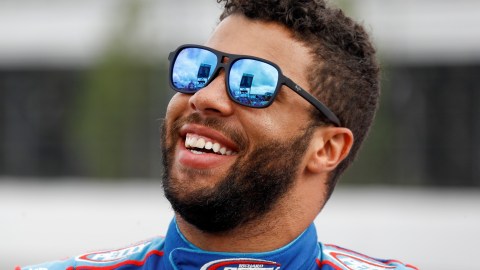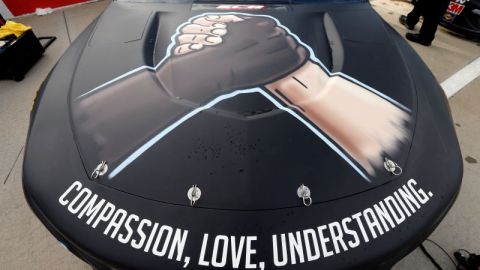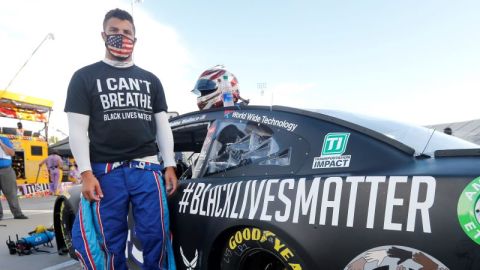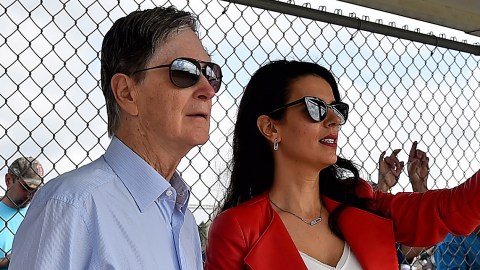 BOSTON — The next round of collective bargaining should be a cinch for Adam Silver after this.
BOSTON — The next round of collective bargaining should be a cinch for Adam Silver after this.
A little more than a month into his tenure as NBA commissioner, Silver sat down with author Malcolm Gladwell on Saturday at the MIT Sloan Sports Analytics Conference to talk about — well, whatever Gladwell wanted to talk about. A leisurely, introductory chat, this was not.
Gladwell grilled the commissioner on several controversial topics in a wide-ranging conversation that Silver, to his credit, seemed to enjoy. The back-and-forth on the draft lottery, whether college athletes should be paid and the prevalence of performance-enhancing drugs in basketball occasionally quickened both panelists’ pulses.
The issue that concerned Gladwell the most, however, and therefore dominated the early part of the program, was the long-running property tax break given to New York Knicks owner James Dolan on Madison Square Garden. Gladwell, a New Yorker, hammered away at how unjust he believed it was. Silver, who grew up in Westchester County, took part in one of the least-popular past times among New Yorkers: defending Dolan.
“I would only say it’s an enormous net plus, having the Knicks and Nets in New York City,” Silver said. “That’s why Mayor Bloomberg supported building the new arena in Brooklyn, as opposed to leaving the team in New Jersey.”
“There is a point where owners are clearly being greedy, and it’s inappropriate,” Gladwell countered.
Minimizing the discussion to a mere argument over the morality of Dolan would trivialize an informative interview in which Gladwell managed to challenge Silver without ever becoming contentious. An hour-long session is condensed into some noteworthy bites of Silver’s comments below.
On luxury tax and draft lottery being called “socialism”: “The case we present is, we’re not true economic competitors. If we were, our teams would be trying to put each out of business. … It’s important to us that you operate in a way to afford competitive revenue for all teams.”
On lottery rewarding failure: “We’ve continued to tinker with it. By definition, that’s why we have a draft lottery, because we are concerned about those disincentives to win. … I’m not sure if analytics support the notion that you can game the system.”
On “wheel” draft proposal: “This goes to show why you really need to study these issues. When (Celtics assistant GM Mike Zarren) first brought it to me, I thought, that solves our problems. Teams can plan for the future, there’s no incentive (to lose), they know exactly where their draft pick is coming from. … What came back is teams saying, hold on a second, because there is a perception that certain markets have advantages” in attracting players to come out of college.
On playoff system: “Although I’m not proposing changing it, by having a seven-game series, you reduce the randomness of the outcome. I think what’s so exciting about college basketball, and I’m a huge college basketball fan, is the single-elimination nature of the NCAA tournament. … I love the drama and narrative of the seven-game series, but sometimes when one plays eight, that’s so lopsided.”
On competitive reforms: “I’d love for more owners to say, ‘I get it. This might not be in the interest of my team at the moment, but over the long term, I want to grow our fan base.'”
On performance-enhancing drugs: “It’s hard for me to believe with 450 players in this league, with a lot of players moving through every year, that nobody would be talking about it (if they were prevalent). We may be fortunate in the NBA that there is a cultural view that those types of drugs are not helpful for performance.”
On player behavior: “There’s an appropriate societal role we play as far as the sport we play. The kids are watching. That’s part of what we look at, too.”
On age minimum: “Something I’ve been very focused on in my first few weeks as commissioner is the so-called ‘one-and-done’ rule and whether that’s good for our game and whether that’s good for college.”
On allowing players to stay in school after they are drafted: “That’s not our rule, that’s college’s rule. … From the league’s standpoint, that maybe accomplishes our goal. The player continues to get great coaching and gets an education as well.”
On evolving viewership: “The generation coming up doesn’t watch as much television, for the first time. They consume tremendous amounts through social media. Not just watching television, but watching a channel over a long period of time has diminished. … What’s happening, in terms of Internet vocabulary, is we have increased uniques watching our games, but average (engaged) minutes have gone down.”
On shortening halftime for TV viewers: “What shouldn’t be lost is that our arenas still generate a substantially higher percentage of revenue than many people believe on the outside. … What I hear from people, which is very different from the television viewer, is that halftime is too short. By the time I get something to drink and go to the bathroom, the second half has already started.”
On putting a franchise in Seattle: “I’m very sympathetic to the city of Seattle. We had a team there the large portion of time I’ve been with the league. I hope we get back there some day, but right now I’m responsible for our 30 teams, not all of which are economically healthy.”
On the strain of back-to-backs: “It’s not just back-to-backs, it’s the length of travel involved in back-to-backs. … If you eliminate back-to-backs, you also have to reduce the number of games or extend the season.”
On the NBA being ready-made for social media: “This is the sport of the 21st century.”
Have a question for Ben Watanabe? Send it to him via Twitter at @BenjeeBallgame or send it here.



